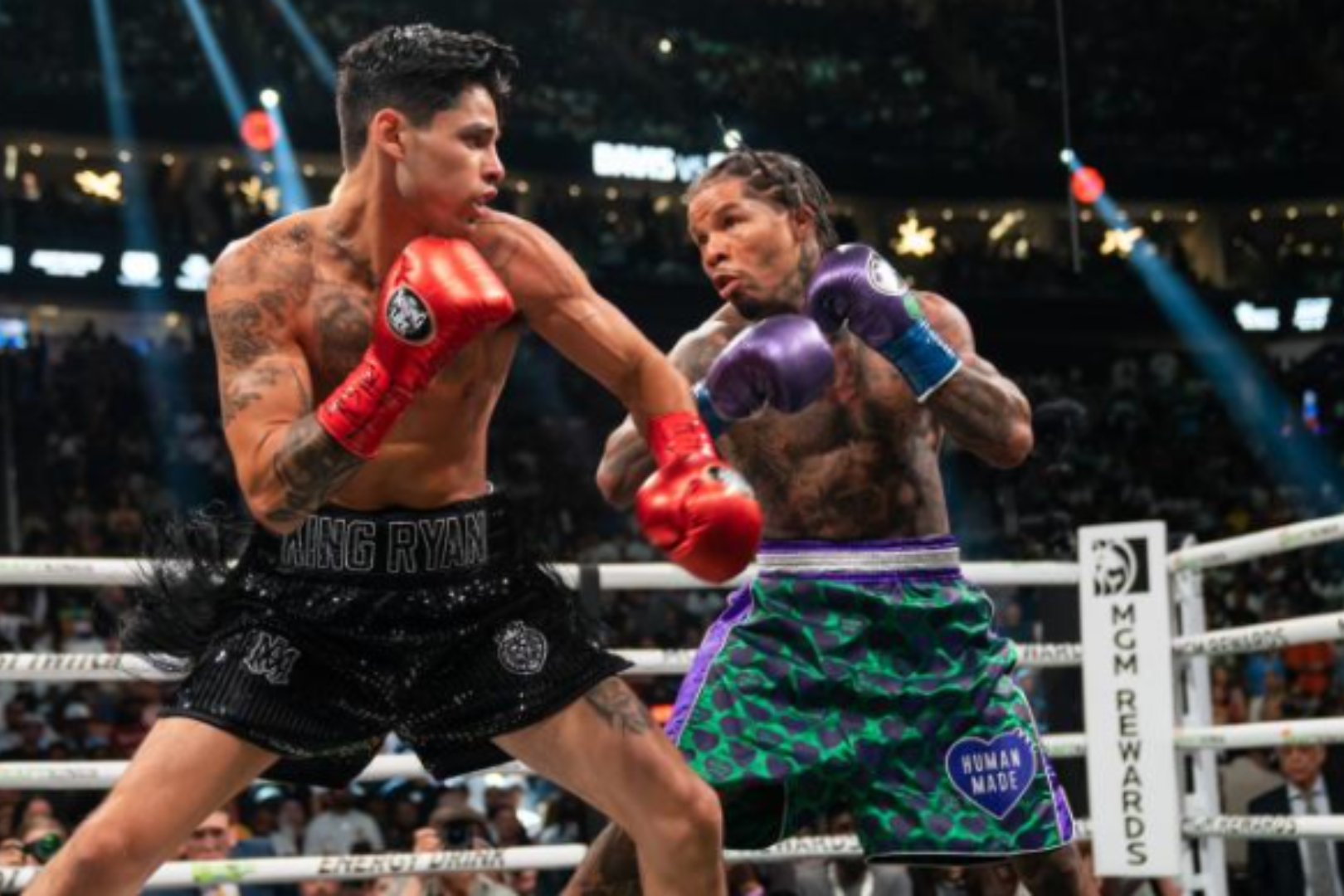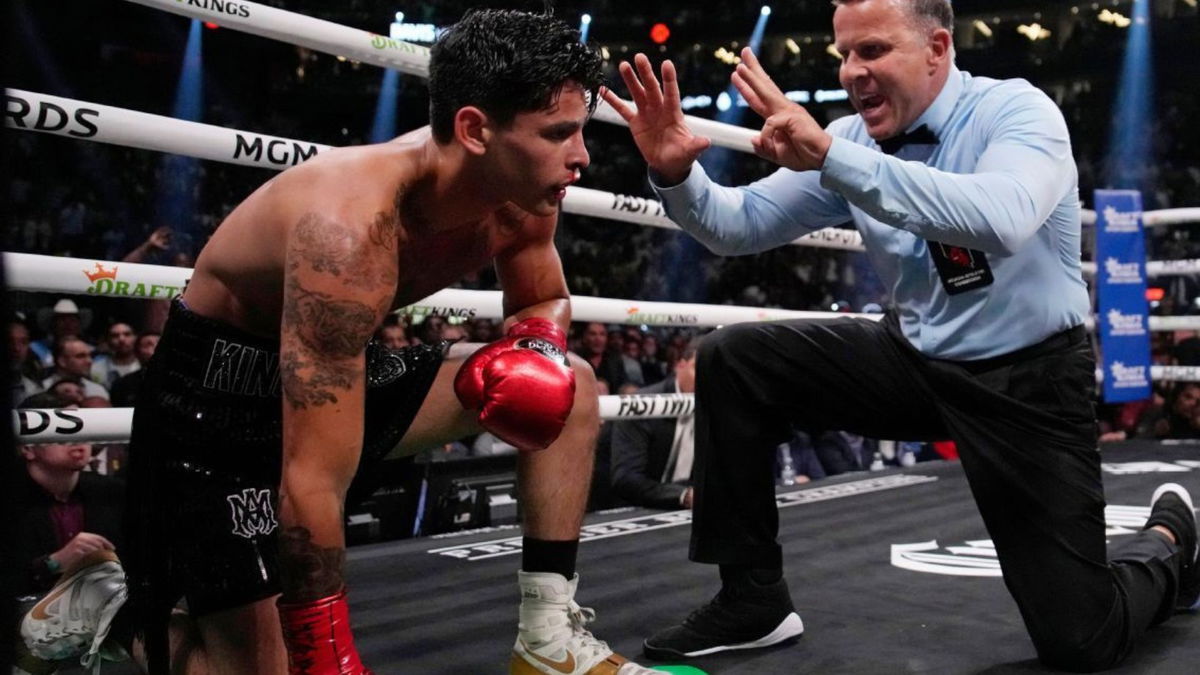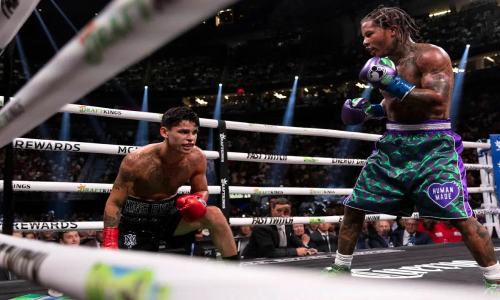Well, let me tell you, this boxing thing, it ain’t as simple as it looks on that TV box. They got all sorts of rules, you know? One of ’em is this here rehydration clause. Now, what in the Sam Hill is that, you ask?
See, these fellas, these boxers, they weigh themselves before a fight. That’s called the “weigh-in.” But sometimes, a fella might try to be sneaky. He might be heavier than he’s supposed to be, but he’ll dry himself out like a prune to make the weight. Then, after the weigh-in, he’ll guzzle down water like a thirsty dog and put all that weight back on. That gives him an advantage, see? He’s bigger and stronger than the other fella who didn’t do all that.

So, this rehydration clause, it’s like a rule that says, “Hold your horses, sonny! You can’t gain too much weight after the weigh-in.” It’s there to keep things fair, you know? Like, if one fella is supposed to be fighting at, say, 150 pounds, this clause might say he can’t go over 160 pounds by the time the fight starts. That’s what they call the weight limit for the day of the fight.
Why they do this? Well, it’s ’cause they don’t want one fella to be way bigger than the other. It ain’t right, you know? It’s like sending a little fella to fight a bear! They wanna make sure these boxers are in the same weight class, so it’s a fair fight. It’s all about keeping it even, like two roosters in a cockfight, same size, same chance.
- Keep it fair
- Stop the big fellas from picking on the little fellas
- Make sure nobody’s got an unfair advantage
This rehydration clause, it’s in the contract, you see. That’s the paper they sign before they agree to fight. It’s all official-like. And they gotta weigh themselves again the next morning, just to make sure they ain’t gone over that limit. If a fella goes over, there might be trouble. Maybe he gets fined, or maybe the fight gets called off. Nobody wants that, do they?
Now, I heard about this one fight, a big one, where they had this rehydration clause. One of the fellas, he wanted the other fella, a fella named Davis, to fight him. But he knew Davis was lighter than him. He was from California. So he put in this clause, saying the other fella couldn’t gain more than 10 pounds after the weigh-in. He thought it wouldn’t be a big deal, just a little something extra to make sure everything was on the up and up. But it was a big deal to the other guy! It was a hassle to keep that weight, but it was the only way he could get the fight.
It’s important, this whole rehydration clause thing. It is a big part of boxing contracts. They use it when fellas are fighting outside their usual weight, you know, like when a lighter fella wants to fight a heavier fella. Makes sense, right? You don’t want a big ol’ ox fighting a little bantam rooster.

It’s all about being fair in boxing. They got rules for a reason, you know? It ain’t just about punching each other. It’s about doing it the right way, the fair way. And this rehydration clause, well, it’s just one of those rules that helps keep things on the level. They want to keep the fellas healthy.
They say it’s like when you got two fellas, and one’s a lot bigger than the other. The little fella, he’s got a disadvantage, see? So, they put in this clause to make it a little more even. It’s like saying, “Alright, big fella, you can’t just go and eat a whole cow after the weigh-in. You gotta keep it reasonable.”
So, that’s what a rehydration clause is. It’s a rule in boxing contracts that says you can’t gain too much weight after the weigh-in. It’s there to keep things fair and make sure nobody’s got an unfair advantage. It’s all about making sure these fellas are fighting on equal ground. They set the weight limit for the day of the fight.
It’s a bit complicated, all these rules and regulations. But it’s all for the best, I reckon. Keeps things fair and square, and that’s what matters, right? It is important to have this clause in the boxing contracts. You want a good, clean fight, not some lopsided brawl.
























